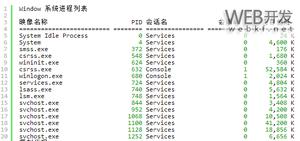如何在茶叶包装操作中保留其原味——现场总线应用

中文简介:
世界上最大的茶叶生产、填装以及包装商之一将来自世界各地的茶叶混合起来。在提高产品质量的一个步骤中,公司决定取消使用箔来包装茶叶盒,改为使用其他原料来进行密封以保存其风味。这种变化使重新考虑现存的包装和运输系统的控制概念成为必要。
这样一个加工的操作是很庞大的,跨越250英尺并在20个自动填装机和最终包装站之间作为联接。在茶叶的特色品种例如蔷薇果、胡椒薄荷以及甘菊茶叶被传送带运送到最终的包装站之前,有必要使用包装箱密封机来密封包装箱。
当填装系统正在运行的时候,包装箱在包装箱排列站里被折叠和粘合。完成这些操作的包装箱通过一个聪敏的包装箱逻辑系统运送到填装机处。在这里,各种各样的茶叶品种被分类装入到达这里的包装箱。
这个全自动加工过程中有多种栅栏,阀门和电动机来帮助完成控制。
英文原文:
Preserving the Flavor in Tea Packaging Operation
APPLICATION OVERVIEW
One of the world’s largest merchandisers of tea manufactures, fills and packages selected tea blends from all over the globe. In a move to enhance their product, the company decided to abandon the use of foil packaging for tea cartons and changeover to other materials to seal in the flavor. Such a change made it necessary to rethink the control concept for the existing packaging and transport system.
The operation is large for such processes, spanning some 250 feet and functioning as a link between 20 automatic filling machines and the final packaging station. Before the tea specialties, such as rose hip, peppermint, and chamomile teas, are transported to the final packaging station by the conveyor line, it is necessary to seal the cartons using a carton sealer.
While the filling system is operating, cartons are folded and glued in carton aligning stations. The finished cartons are then transported to the filling machines via a clever carton logic system resembling a shunting yard. The various tea specialties are sorted into the arriving packages at the filling machines.
Multiple light barriers, valves and motors help control this fully automatic process.
CONTROL SYSTEM
A PC controls the carton sealer utilizing the standardized IEC 1131-3 programming language. This type of program is based on high-level languages and permits the user program to be represented in a manner familiar to any PLC programmer, for example – as a standardized instruction list, ladder diagram or function block. The final packaging station is also controlled by INTERBUS.
INTERBUS smart terminal I/O modules pickup the signals from the jam light barriers as well as the contactors which are also decentralized and used for activating the conveyor belt motors.
In addition to the INTERBUS I/O modules, a large-sized text display system is also integrated into the bus topology via an integrated INTERBUS interface.
INTERBUS CMD (Configuration, Maintenance and Diagnostics) software clearly displays INTERBUS system information. In order to guarantee packaging quality in the case of a conveyor jam, for example, it must be possible to switch-off inpidual belts within a specific time, working back from the location of the malfunction. Switch-off is done through CMD, and the conveyor restarts automatically and runs normally following correction of the malfunction.
PREVIOUS SOLUTION
The old, conventional contactor control system was initially replaced by a PLC in order to achieve the required level of flexibility.
Tea cartons reach the final packaging station, which is also controlled by INTERBUS.
RESULTS/BENEFITS SUMMARY
For reasons of time, the usually complex and cost-intensive parallel cabling was replaced by a modern automation system based on INTERBUS, greatly reducing the amount of cabling required, as well as the related labor and material costs. INTERBUS also made possible the separate, time-saving testing of each prefabricated, decentralized subdistribution boards.
INTERBUS support of the decentralized contactor scheme also saved considerable implementation time, one of the principal reasons for this company’s decision to adopt INTERBUS as its networking standard.
以上是 如何在茶叶包装操作中保留其原味——现场总线应用 的全部内容, 来源链接: utcz.com/cha/490013.html








